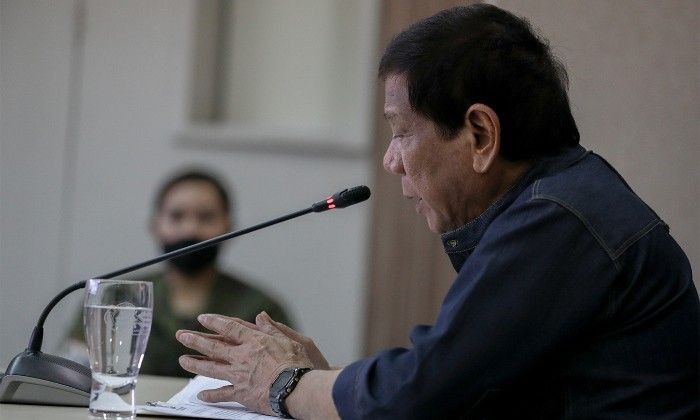Duterte signs terror bill into law

CEBU, Philippines — President Rodrigo Duterte yesterday signed the anti-terrorism bill into law, days after the Department of Justice and the Office of the Chief Presidential Legal Counsel submitted their recommendations on the proposal, which human rights groups warn could lead to abuse by security forces.
Presidential spokesperson Harry Roque confirmed this in a text message to Philstar.com.
In an address to the nation on June 22, Duterte said "forces arrayed against" the government like the Abu Sayyaf and the Communist Party of the Philippines have taken advantage of the COVID-19 pandemic.
"It has undermined the national security of the country," Duterte said of the communist insurgency, which he said started in the 1950s.
Congress sent the enrolled, or final, version of the bill to Malacañang on June 9, giving the president 30 days to approve or veto it. Duterte certified the bill urgent, prompting the House of Representatives to fast-track passage of the bill, which it had copied from the Senate version, making a veto unlikely.
The Concerned Lawyers for Civil Liberties (CLCL) has expressed opposition to the bill, saying it is "antithetical to human rights and democracy in the Philippines."
The group of veteran rights lawyers, led by Dean Chel Diokno, said the bill contains unconstitutional provisions that also "weaken protections against abuse and misuse."
The National Union of People's Lawyers, meanwhile, said it "contains imprecise and poorly worded provisions on the definition of ‘terrorist act,’” as it seeks to criminalize “threats to commit, planning to commit, conspiring and prosing...the vague concept of ‘terrorist acts."
The Department of the Interior and Local Government, the department that the Philippine National Police is part of, has said that, despite concerns raised by lawyers, human rights workers, academics, and business groups, the anti-terrorism bill will not be used to silence dissent.
"The aim of the Anti-Terrorism Bill is to eradicate terrorism from our country. The people have nothing to fear from this bill; it is only the terrorists and their supporters who should fear it," DILG Secretary Eduardo Año said.
The Palace confirmed the enactment of the Anti-Terrorism Act of 2020 on a Friday, past 5:00 p.m. — or when courts have already closed.
Several groups have already manifested that they will challenge this new anti-terrorism law before the Supreme Court.
NUPL president Edre Olalia vowed that the fight isn’t over yet.
“We will not cease to exhaust any and all legitimate steps and platforms to challenge this draconian law,” he told reporters in a message.
Retired Supreme Court Senior Associate Justice Antonio Carpio earlier said he would be one of the petitioners to challenge the Anti-Terrorism Act of 2020. He told Philstar.com that he is still unsure of the exact date they will file the petition.
The enactment of the law came a day after the Bangsamoro Transition Authority Parliament passed a resolution asking Duterte to veto the law.
Carpio had earlier warned that with “the anti-terrorism act as part of the land, it is as if the Philippines is permanently under a situation worse than martial law.” Philstar.com (FREEMAN)
- Latest






















